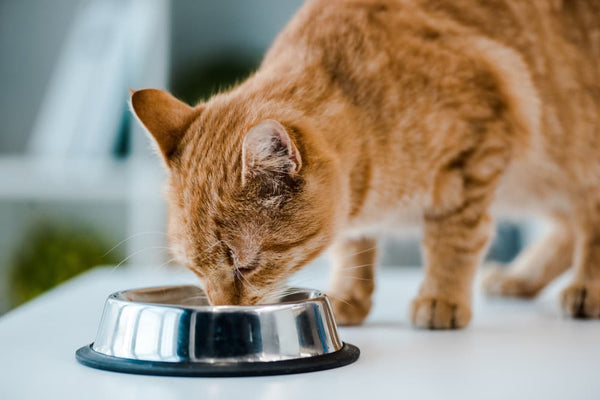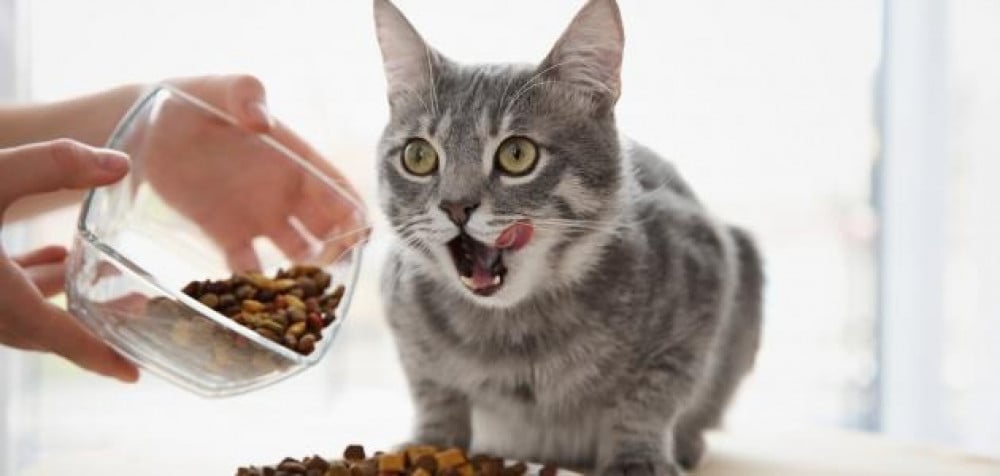Does your cat smell her fresh treat and then simply walk away? There are many reasons why cats may refuse to eat or pick up some food only with difficulty. Fortunately, there are ways and strategies that enable you to get your cat back to eating his meals normally.
What causes your cat to refuse to eat?
Did you just change the type of food you feed your cat? A change in the food's flavor, texture, or even temperature may cause your cat to refuse to eat. If their new premium raw food requires refrigeration when they are used to getting room-temperature wet food from the pantry, this small change may be enough for the cats to have a hard time eating their food.
But if their food remains the same, you should consider other possibilities. Do they get lots of enticing treats from you or their friendly neighbors?
In this case, their food may not look as exciting as usual. Has your cat eaten a bag of dry food for a long time? Your cat's sensitive nose will know the food is spoiled long before you can smell anything. Changing your cat's food bowl may be enough to stop her favorite food.

What is the solution to refuse to eat when cats?
We have some solutions to follow when your cat is refusing to eat. Take a look at the list below and start testing the methods you think are most likely to help your cat, but don't be surprised if it takes a few tries. You know your cat better than anyone, but even our best friends can surprise us every now and then!
- Switch foods gradually. If you are trying to transition your cat to a new food, mix her new food into her old food little by little, and gradually increase the new food until she has 100% new food.
- Stick to a fixed schedule. If your cat expects breakfast and dinner at the same time each day, this routine may help her to eat regularly. Any reminder of meal time through the automatic feeding device for your cat is available through our store
- Try leaving the food out for 15-30 minutes and then removing it until the next meal. This method also allows you to better gauge how much your cat is eating from the nutrition always available to her.
- Reduce rewards. If your cat is eating a lot of high-value foods or is tempted by human food, she may start to crave it instead of dinner. Try to control the quality of your cat's meals and control the quality of food.
- Make sure their food is fresh and their food dish is clean. Cats can smell spoiled food or bacterial growth in their food bowl - and who wants to eat that? Especially from cats.
- Praise the cats for eating. Some cats prefer to eat with company, and a good place to pet after a meal and lots of praise will teach them to look forward to dinner time.
- And don't forget the simple fact that every cat has a picky eater, they also have their own favorite food that they can devour!

Try a variety of cat foods
Some people hate a food, no matter how many times other people insist it's delicious! The same rule applies to your cat. It's a good idea to test out a few foods to see if one pumps her up for dinner.
Some cats like crunch while others prefer the moisture and fresh meat in wet cat food. You can even combine the two, using wet food as a topping to make eating food more tempting. Try switching proteins and you may find that your cat loves chicken meals and never loves seafood, or quite the opposite!
On our store you will find a wide range of products Dry food for cats and dry with multiple flavors, and you can choose what suits your picky cat.
When should you visit the vet?
A little feline fussy eating and picky eating is not a major cause for concern, but there are warning signs to look out for. If your cat shows behavioral changes, consistently eats much less, or stops eating her beloved food, you should contact your vet.
If your cat has stopped eating for a full 24 hours or more, these telltale signs confirm that your cat's eating difficulties are not a passing condition, and it's important to take her in for a visit because poor nutrition can cause a harmful liver condition called fatty liver disease.
The good news is that in most cases, there is a simple solution to cat food refusal and picky eating! It may take a little thought, but eventually you'll get to know your cat better - whether she insists on a strict tuna-only diet or will only eat her meal while being petted. Knowing your cats' quirks will definitely help you keep them.

